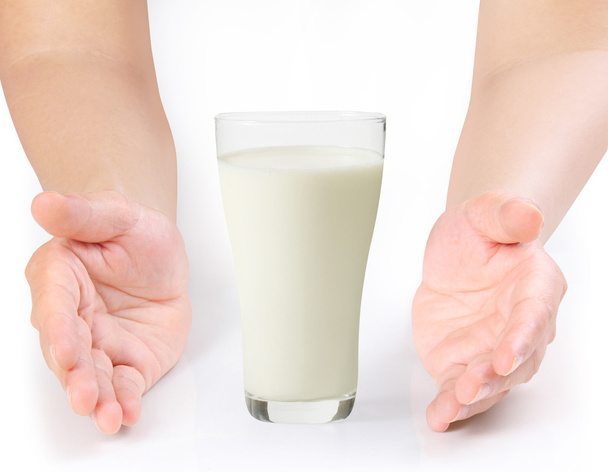Medically Reviewed by:
Name: Ezire Lilian Chinwe
Description: A highly motivated and licensed biomedical scientist with over 7 years of experience, dedicated to advancing healthcare through innovative research and analysis. Expertise includes genetics, microbiology, and immunology with a commitment to staying at the forefront of scientific advancements.
Health Benefits of Milk in the Body
Milk is a nutritious beverage that has been consumed by humans for centuries. It is a rich source of essential nutrients and is often referred to as “nature’s perfect food.” In this article, we will explore the various health benefits that milk provides to the body. From bone health to improved hydration, milk offers numerous advantages that contribute to overall well-being.
Nutritional Composition of Milk
Milk is a rich source of important nutrients. It has high levels of protein, calcium, and phosphorus. Milk is also full of vitamins like vitamin D, vitamin B12, and vitamin A. Plus, it contains minerals like potassium and magnesium. All these nutrients together help support the body’s functions and maintain good health.

Strong Bones and Teeth
One of the most well-known benefits of milk is its contribution to bone health. Milk is rich in calcium, which is essential for the development and maintenance of strong bones and teeth. Calcium, in combination with other bone-building nutrients like vitamin D and phosphorus, helps prevent conditions such as osteoporosis and promotes optimal bone density.

Enhanced Muscle Growth and Repair
Protein, a crucial component of milk, plays a vital role in muscle growth and repair. Regular consumption of milk provides the body with high-quality protein, which is essential for building and maintaining lean muscle mass. Milk protein contains all the essential amino acids required for effective muscle recovery after exercise and physical activity.
Improved Cardiovascular Health
The nutrients present in milk, such as potassium, calcium, and vitamin D, contribute to cardiovascular health. Potassium helps regulate blood pressure, reducing the risk of hypertension and heart disease. Calcium supports heart muscle function, while vitamin D aids in calcium absorption, reducing the likelihood of developing cardiovascular issues.
Weight Management
Including milk in a balanced diet can be beneficial for weight management. The protein in milk helps increase satiety and reduce appetite, promoting feelings of fullness and preventing excessive calorie intake. Additionally, milk provides a good balance of carbohydrates and fats, ensuring sustained energy levels throughout the day.
Boosted Immune System
Milk contains various nutrients, including vitamins A and D, which are crucial for maintaining a strong immune system. Vitamin A plays a role in supporting the integrity of the skin and mucous membranes, acting as a barrier against pathogens. Vitamin D helps regulate the immune response, enhancing the body’s defense mechanisms.

Hydration and Rehydration
Milk is a drink that hydrates you. It helps keep your body’s fluids at the right levels because it has a lot of water in it. Milk is also good for when you need to replace electrolytes like potassium and sodium. This is important after you’ve worked out hard or if you’re dehydrated.

Healthy Skin and Hair
The nutrients found in milk, such as vitamin A, vitamin D, and protein, contribute to healthy skin and hair. Vitamin A promotes skin cell turnover, helping maintain a youthful complexion. Vitamin D plays a role in skin cell growth and repair. Protein is essential for the production of keratin, a protein that strengthens hair strands and promotes hair health.

Cognitive Function
Milk can help your brain work better because of its nutrients. The vitamins and minerals in milk are good for your brain and help you think well. Specifically, vitamin B12 is important. It helps make neurotransmitters, which the brain needs to work properly.
Prevention of Chronic Diseases
Regular consumption of milk has been associated with a reduced risk of chronic diseases. The nutrients in milk, such as calcium, vitamin D, and potassium, contribute to the prevention of conditions like osteoporosis, type 2 diabetes, and certain types of cancer. These nutrients work together to support overall health and reduce the likelihood of developing chronic diseases.
Digestive Health
Milk contains lactose, a natural sugar present in dairy products. For individuals who are lactose intolerant, consuming milk may lead to digestive discomfort. However, for those who can tolerate lactose, milk can be beneficial for digestive health. The protein in milk helps maintain a healthy gut lining and supports the growth of beneficial gut bacteria.
Managing Blood Pressure
Milk is high in potassium, which is good for blood pressure control. Potassium relaxes blood vessels and helps prevent high blood pressure. When added to a balanced diet and with other lifestyle changes, milk can help keep blood pressure at a healthy level.
Eye Health
Milk is rich in essential nutrients such as vitamin A and riboflavin, which are good for eye health. Vitamin A improves vision and helps to ward off night blindness. Riboflavin helps keep eyes healthy and lowers the chance of developing age-related macular degeneration.
Conclusion
Milk is a valuable addition to a healthy diet, providing numerous health benefits to the body. From supporting bone health and muscle growth to boosting the immune system and promoting healthy skin and hair, milk is a versatile beverage with a range of advantages. Incorporating milk into your daily routine can contribute to overall well-being and help you maintain a balanced and nutritious diet.
Frequently Asked Questions (FAQs) Health Benefits of Milk
1. Is milk suitable for individuals with lactose intolerance?
People who are lactose intolerant can have stomach problems when they drink milk. This is because of the lactose in milk. They can try lactose-free milk or take lactase enzyme supplements instead.
2. Can milk help with weight loss?
Milk can aid in weight management due to its protein content, which promotes feelings of fullness. However, it is important to consume milk in moderation and as part of a balanced diet.
3. What is the recommended daily intake of milk?
The recommended daily intake of milk varies depending on age, sex, and individual needs. In general, it is advised to consume 2-3 servings of dairy or dairy alternatives per day, following dietary guidelines and recommendations from healthcare professionals.
4. Is milk a suitable beverage for hydration?
Yes, milk can contribute to hydration due to its high water content. It also provides essential electrolytes, making it a good choice for hydration after physical activity or dehydration.
5. Are there any risks associated with consuming milk?
While milk is generally safe and nutritious for most individuals, some people may be allergic to milk proteins or have lactose intolerance. It is important to be aware of any personal allergies or intolerances and consult with a healthcare professional if needed.
Sources:
EatingWell www.eatingwell.com/article/7961444/what-happens-to-your-body-if-you-drink-milk-every-day/
Healthline www.healthline.com/nutrition/milk-benefits
Medically Reviewed by:
Name: Ezire Lilian Chinwe
Description: A highly motivated and licensed biomedical scientist with over 7 years of experience, dedicated to advancing healthcare through innovative research and analysis. Expertise includes genetics, microbiology, and immunology with a commitment to staying at the forefront of scientific advancements.









